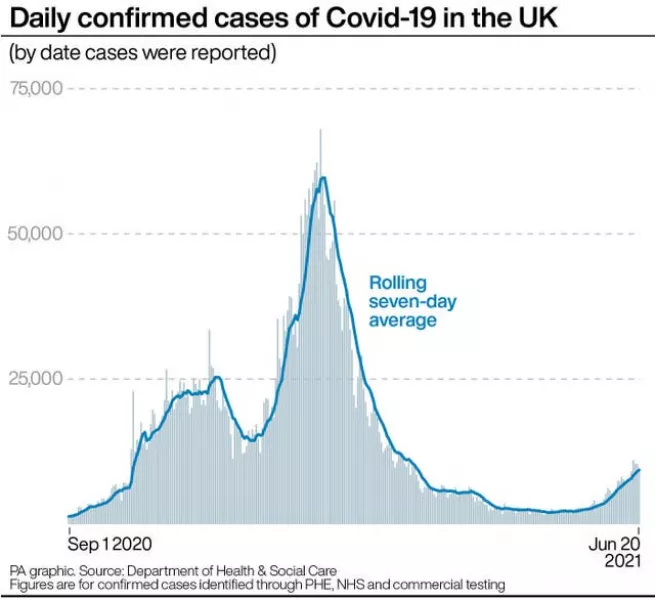UK health secretary Matt Hancock has said he plans to scrap the requirement for people who have had two Covid-19 jabs and come into contact with an infected person to isolate for 10 days.
Mr Hancock said the approach is currently being piloted but will be introduced as soon as possible once clinicians have looked at the data.
Under the plan, the 10-day quarantine period could be axed in favour of daily lateral flow tests.
Mr Hancock told BBC Breakfast the approach is being piloted “to check that that will be effective, but it is something that we’re working on”.
He added: “We’re not ready to be able to take that step yet, but it’s something that I want to see and we will introduce, subject to clinical advice, as soon as it’s reasonable to do so.”

Asked whether the remaining restrictions are likely to be lifted before the new England road map date of July 19th, Mr Hancock said experts will examine the figures shortly.
He said: “We are looking at the data, and we’ve said that we’ll take a specific look two weeks into the four-week delay that we had to put in place to get more people vaccinated, so we’ll do that.
“But I have every confidence that the more people get vaccinated, the easier it is (and) the safer it is to lift restrictions.
“We had to have the delay in order to get more people vaccinated, especially those second vaccines to protect people, we’re being careful, we’re being cautious.
“But I have a high degree of confidence that this vaccine is going to get us out of this, and the more people who come forward, the easier that will be.”

He said more than a million second jabs for people over the age of 50 have been done in just 10 days.
“So we are getting there,” he added. “We’re not quite there yet but we’re getting there and you can see it in the data, you can see the protection that people are getting.”
Turning to NHS waiting times, Mr Hancock said there is a “big and challenging backlog that has been caused by the pandemic” and suggested it could take up to a few years to clear.
He said there are currently 5.1 million people on the waiting list, “but there’s also millions of people who haven’t come forward with a condition that… might have been niggling rather than acutely serious, and they’ve been waiting until the NHS is in a better position to be able to come forward. And so we do expect that number to rise.”
He said there has been progress on long waits of more than a year but “there is going to be a huge effort over months to come”.
Asked about comments made by one medic that it will take the NHS five to 10 years to get back to normal, Mr Hancock said: “I think we can sort it faster.”
He added: “We’ve been able to make progress against those longest of waits, but this is going to be a big effort, certainly for months, maybe for a couple of years, but we’re determined to sort it faster than that timeframe set out by the orthopaedic consultant in Coventry.”







